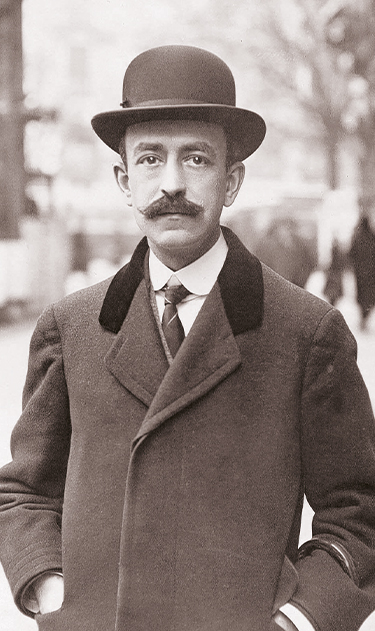“La Atlántida” (Atlantis) is not only a mythical sunken continent but also the title of a stage cantata for soloists, choir and orchestra, which Manuel de Falla left unfinished, and Ernesto Halffter worked to complete. The text, in Catalan, is based on fragments of the famous epic poem of the same title by Jacinto Verdaguer. Falla had been attracted since childhood to those verses that summarized his mystical, philosophical and humanistic concerns.
In the long creative process –which continued during his self-exile in Alta Gracia, Argentina– there is an emblematic date, 5 December 1930, when he returned to conduct a concert in the theatre that today bears his name in the capital of Cádiz. In the following days, along with his friend, writer José María Pemán, he was encouraged to visit the small island of Sancti Petri to which legend attributes the existence of the temple of Melkart or Hercules, the kingdom of Tartessos and the gates to the mythical continent of which Plato spoke.
On 12 December 1930, they set out on the adventure with other friends, despite the fact that the prestigious German archaeologist Adolf Schulten had found no proof that any of the legend was true. According to Pemán, Falla said only this: “It is unfortunate that archaeology is so disrespectful to Plato. But no matter: in this duel, poetic truth will always win.”
“Why did we go to the islet of Sancti Petri? I think it’s easy to guess: we were looking for the Temple of Hercules… Falla wanted to set foot on the site of the famous temple dedicated to the hero of his future poem,” wrote Pemán.
They visited the old fort of Sancti Petri, the castle, and the islet where it is located, and even found a piece of pottery that the boatman, who had rudimentary archaeological knowledge, later explained might be some fragmentary remains of a cinerary urn from the temple of Hercules: “And the enigmatic ancient piece made him as loquacious as the handful of acorns did Don Quixote. He spoke to us with passion and enthusiasm about his future work: the entry of Hercules, the fire in the Pyrenees, the song of Barcelona, the song of the seven Pleiades; Hercules, victorious, running towards Spain with the topmost branch of the golden orange tree; the breaking apart of the Strait of Gibraltar. And then, the Atlanteans, forming a human tower to climb up to heaven. And when they reach the heights, the voice of God is heard”. Falla shuddered as he said this. “And the voice of God” –continued Falla—“marks the beginning of the great Verdaguer verse: Atlanteans: you must perish…” Falla pauses. The murmur of the sea can be heard. Then he ends with thrilling simplicity: “I would like the choir to sing this part on their knees…”, Pemán recalled.
“I prefer the murmur of the gentle waves on the beach, not the crash of waves against breakwaters or seawalls. The latter is the dialogue of the sea with the stones; the former is the monologue of the solitary sea that began with the world and will end with it…”, that is what Falla said, and he looked for it and found it in Sancti Petri, according to Tamara García in the now yellowed pages of the Diario de Cádiz, 90 years after that trip.
